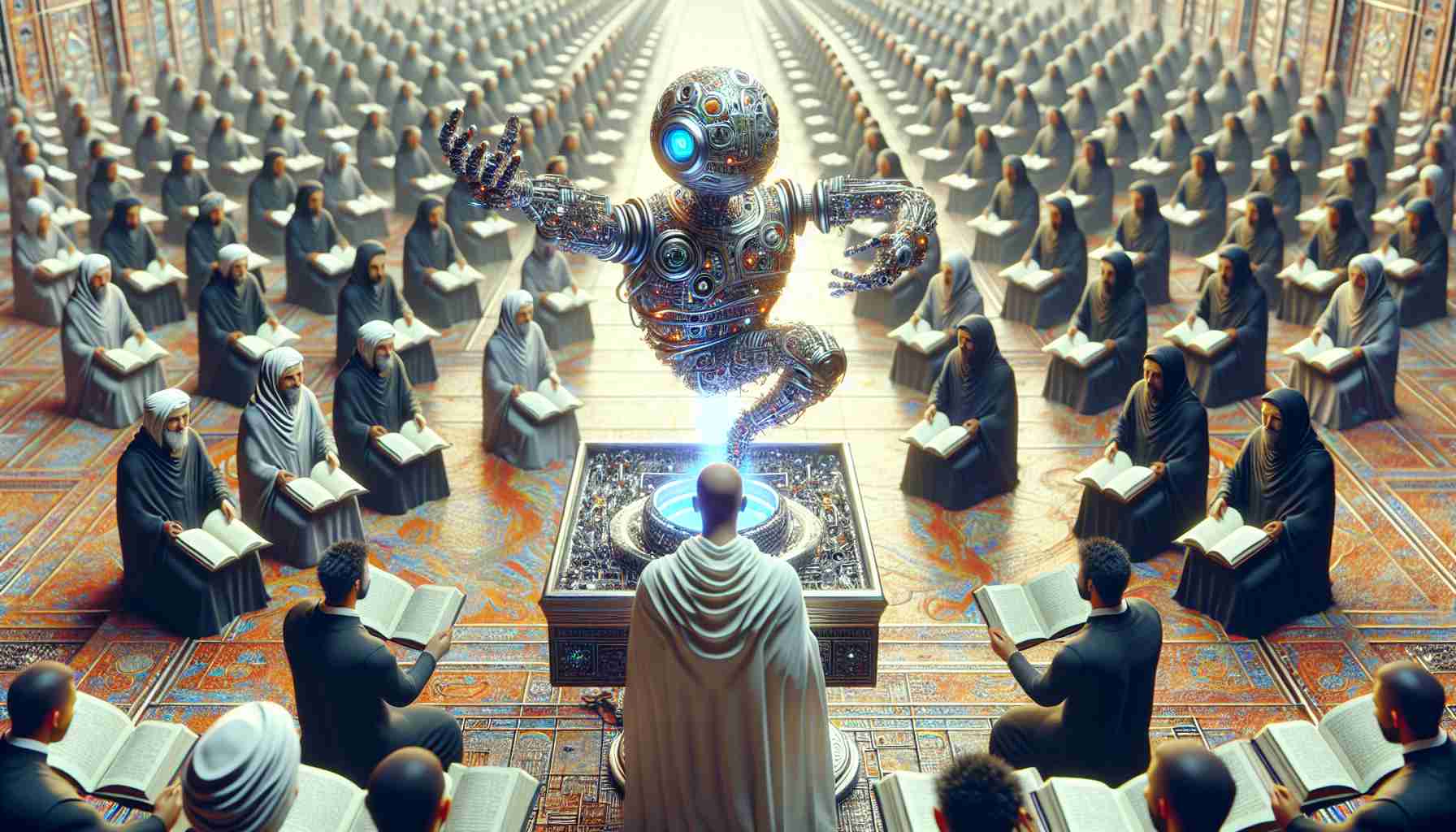A Groundbreaking Study Challenges Our Understanding of Poetry
A provocative new report from the University of Pittsburgh asserts that poetry generated by artificial intelligence may be virtually indistinguishable from that penned by humans. This revelation has sparked a flurry of discussions in literary circles, igniting debates about the relevance of poetry in an age dominated by technology.
The research, led by scientists Brian Porter and Edouard Machery, adopted a competitive mindset, treating poetry as a puzzle to be solved. They concluded that AI-generated verse now rivals human creativity. Critics express concern, arguing that such claims risk undermining the significance of human poets and the teaching of poetry itself. As the report highlights, AI operates by analyzing extensive datasets, drawing from countless authors without their consent—a practice likened to cultural theft.
The study’s structure included directing ChatGPT to imitate specific poets and having participants discern the origins of the writings. Interestingly, the participants reported difficulty in making accurate judgments, often guessing randomly. Furthermore, the participants possessed limited experience with poetry, potentially skewing the results.
While the researchers noted a preference for the more accessible styles of AI poems, this raises questions: Does accessibility equate to quality? Enthusiasts argue that poetry’s true essence lies in its ability to provoke deep thought and reflection—qualities that generative models may not fully capture, regardless of the preference exhibited. As poetry continues to evolve, the future of human creativity and AI-generated art remains uncertain.
The Impact of AI on the Future of Poetry: A Closer Look
A Groundbreaking Study Challenges Our Understanding of Poetry
A recent study from the University of Pittsburgh has stirred up significant debate among literary scholars and enthusiasts by suggesting that poetry generated by artificial intelligence (AI) can closely resemble that created by humans. Led by researchers Brian Porter and Edouard Machery, the investigation raises essential questions regarding creativity, authenticity, and the boundaries of artistic expression in our technology-driven world.
# Trends in AI Poetry Generation
AI poetry generation is becoming increasingly popular, with models like ChatGPT and others demonstrating the capacity to produce verses that resonate with human emotions and themes. This trend invites scrutiny not only over the quality of the output but also how AI can analyze and reinterpret poetic structures based on existing literature.
# Pros and Cons of AI in Poetry
Pros:
– Accessibility: AI can simplify poetic forms, making them more accessible to a broader audience.
– Volume of Creation: AI can generate poetry at an unprecedented scale, providing a wealth of material for analysis and enjoyment.
– New Perspectives: AI’s unique comparative analyses can introduce novel themes and styles to poets and readers alike.
Cons:
– Loss of Human Touch: Critics argue that AI-generated poetry lacks the emotional depth and personal experience inherent in human poetry.
– Cultural Appropriation: The use of vast datasets from various authors raises ethical concerns regarding consent and cultural theft.
– Market Oversaturation: As more AI-generated works flood the market, the distinction between human and machine-generated art may blur, potentially devaluing traditional poetry.
# Use Cases of AI in Poetry
AI models are being used not only to generate new poetic works but also as tools for teaching poetry. Educators are exploring how AI can assist in creative writing classes, helping students break through writer’s block by providing prompts and examples tailored to their learning needs.
# Limitations of AI-generated Poetry
While AI knows how to manipulate language effectively, it does so without genuine understanding or emotional engagement. This limitation raises questions about whether such works can convey the depth and authenticity found in human creativity. Furthermore, challenges arise in ensuring that AI respects the copyrights of original poets when creating derivative content.
# Insights into the Future of Creative Writing
As AI continues to evolve, predictions suggest a collaborative future between human poets and artificial intelligence. This partnership may pave the way for innovative forms of expression, blending human insight with machine efficiency. Moreover, as the technology becomes more advanced, it will likely inspire fresh debates about the nature of creativity itself.
# The Role of Sustainability in AI Poetry
In a world increasingly focused on sustainability, the use of AI in creative fields is being scrutinized for its environmental impact. Training large language models requires vast computational resources, leading to concerns about energy consumption and carbon footprints.
# Conclusion
The exploration of AI-generated poetry presents both opportunities and challenges that will shape the future of creative writing. As discussions continue among scholars, the role of human poets and the essence of poetry itself are likely to evolve. Engaging with this topic is essential for anyone interested in literature, technology, or the dynamic intersections between them.
For more insights into the impact of AI on literature, visit University of Pittsburgh.
